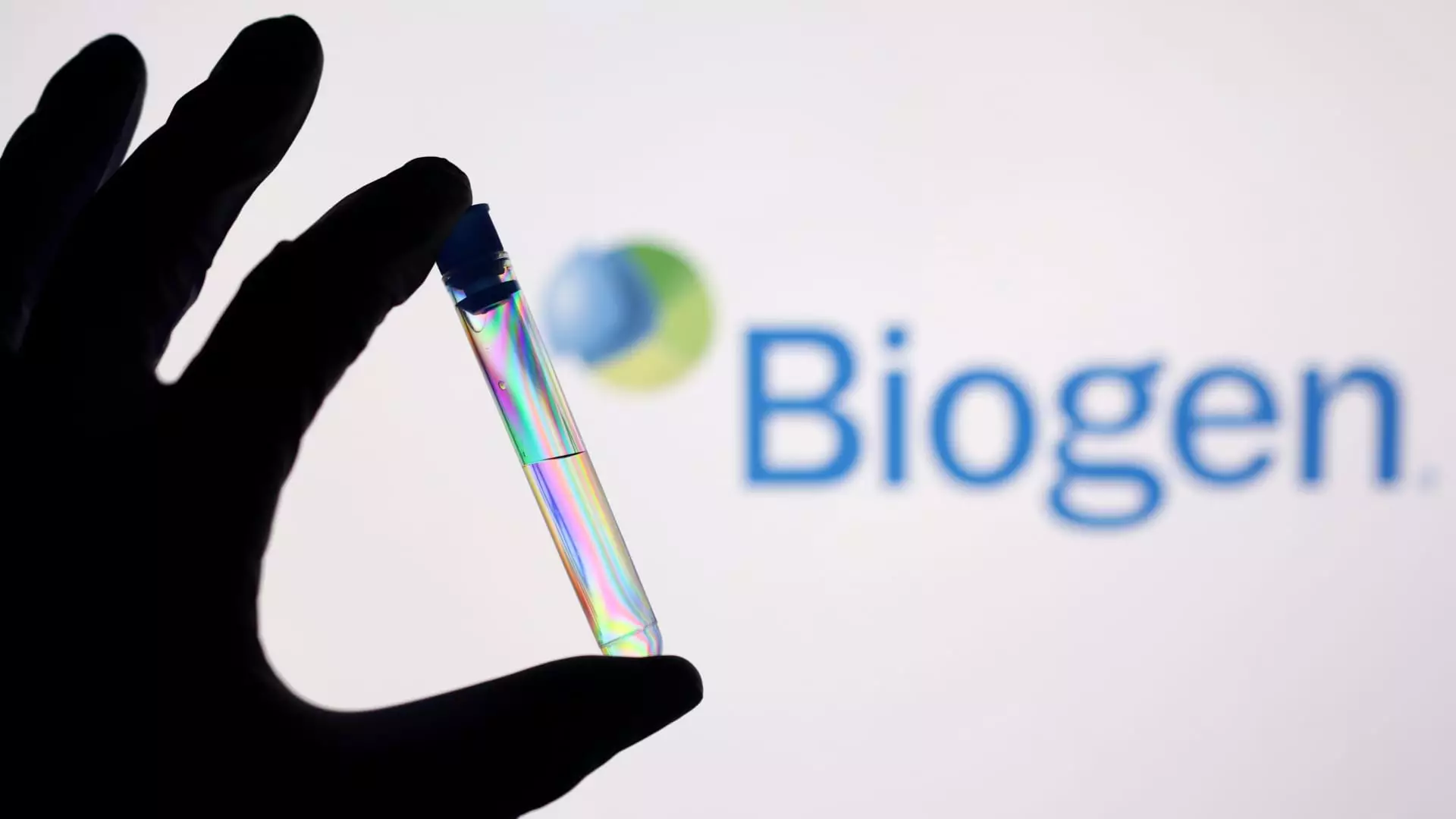Biogen’s recent report on its third-quarter financial performance reveals a company navigating both opportunities and challenges within the ever-evolving biopharmaceutical landscape. The company surpassed analysts’ expectations, posting adjusted earnings of $4.08 per share and revenues reaching $2.47 billion. Compared to projections, which estimated earnings of $3.79 per share and revenue of $2.43 billion, this performance signals a positive trajectory for Biogen as it positions itself to regain momentum in a competitive market.
A significant catalyst for Biogen’s improved earnings is its innovative Alzheimer’s treatment, Leqembi, developed in collaboration with Eisai, a Japanese pharmaceutical firm. Following its U.S. approval last summer, Leqembi has begun to make a notable impact in the market, generating $67 million in sales for the third quarter, of which $39 million was attributed to the U.S. clinical landscape. This performance not only surpasses earlier predictions of $50 million in global sales but also demonstrates growing acceptance despite initial barriers, such as stringent diagnostic protocols and logistical complexities in patient access to treatment.
In the broader context, Leqembi’s sales and the introduction of new therapies addressing rare diseases and depression have been instrumental in countering declines from Biogen’s multiple sclerosis products, which have historically been a significant revenue stream. As a result, the company’s full-year adjusted earnings guidance has been revised upwards, now projected at between $16.10 and $16.60 per share, indicating strong strategic adaptability.
Despite the encouraging results, Biogen faces hurdles as it forecasts a slight decline in sales for 2024—estimated to be a low single-digit percentage drop. This prediction underscores the ongoing challenges in maintaining growth in a market deeply affected by pricing pressures, competition within the neurological drug space, and a complex treatment landscape for Alzheimer’s disease. The gradual uptake of Leqembi may continue to experience friction, especially given the need for routine brain scans and engagement with specialized neurologists.
Additionally, the uncertainty surrounding the current patient population utilizing Leqembi raises questions about the sustainability of sales growth. As the healthcare environment shifts, Biogen must adapt its strategies to not only expand the reach of Leqembi and other new offerings but also to navigate a heavily scrutinized regulatory environment.
Overall, Biogen’s third-quarter results showcase a mix of promise and caution, profiling a company that remains resilient amid significant challenges. The successful launch of transformative therapies like Leqembi and its proactive financial strategies point toward a potentially revitalized future. However, the path ahead will require Biogen to confront operational bottlenecks and market dynamics to fully capitalize on its innovation and maintain profitability. As the pharmaceutical industry continues to evolve, Biogen’s ability to adapt will be crucial in determining its long-term success.

